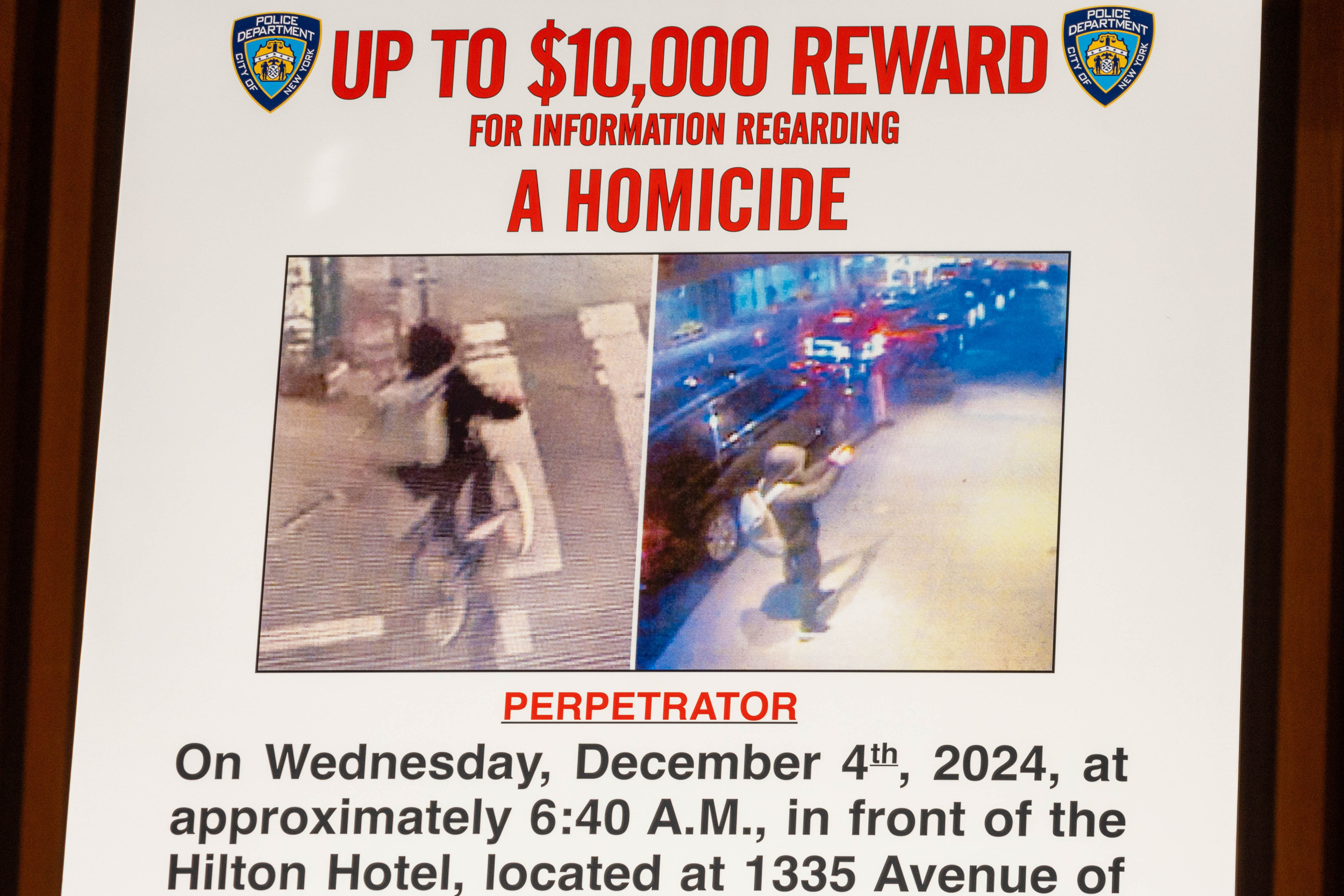A McDonald’s employee who led police to the man accused of killing UnitedHealthcare’s CEO may not receive a $60,000 reward that was offered by authorities.
Brian Thompson, 50, was shot dead by a masked gunman as he walked alone to his company’s annual investor conference at the New York Hilton Midtown at around 6:45 a.m. on Wednesday, December 4.
The killing sparked a huge manhunt, with the New York Police Department publicizing surveillance images of the suspect and a $10,000 reward for information leading to an arrest and conviction. On Friday, the FBI offered an additional $50,000 reward.
Luigi Mangione, 26, was arrested in Altoona, Pennsylvania, after a McDonald’s customer reportedly alerted an employee after recognizing him from surveillance camera images that the NYPD had publicized. That employee then called 911, authorities said.
Alex Kent/Getty Images
Manhattan prosecutors filed murder and other charges against Mangione on Monday. He remains jailed in Pennsylvania where he was charged with possession of an unlicensed firearm, forgery and providing false identification to police, and is contesting extradition to New York.
But despite the tip from a McDonald’s employee leading authorities to Mangione, it’s not clear if the employee in question will ultimately receive any reward money as the FBI and NYPD have stringent guidelines around the awarding such payments.
The rewards offered are for information that not only leads to an arrest but also a conviction. In this case, Mangione would need to be extradited to New York, face trial and be convicted before any reward is paid out.
Newsweek has contacted NYPD Crime Stoppers for comment via email.
How are rewards paid?
A U.S. investigating agency—such as the FBI or Department of Defense—must nominate a person for a reward offered by the FBI, according to the bureau’s Rewards for Justice website. Individuals claiming to have provided information cannot self-nominate for a reward payment.
Then, an interagency committee “carefully evaluates” the information provided by the nominating agency and if it determines that the information that was provided merits a reward, it makes a recommendation to the Secretary of State.
“The Secretary of State has complete discretion over whether or not to authorize any given reward, and can change the amount of the reward, within the terms of the law,” the FBI website states. In federal cases, the Attorney General must also agree with the decision.
The website adds that a nomination does not guarantee that a payment will be approved, but the determination by the Secretary of State “is final and conclusive and not subject to judicial review.”
The FBI also says that it does not publicly share information submitted in response to reward offers or the names of those who receive a reward payment. It says that usually it will not even be disclosed that a reward has been paid out.
The NYPD’s reward program is offered through Crime Stoppers, which typically offers cash rewards of up to $3,500 for information that leads “to the arrest and indictment of a violent felon.”
Tipsters who submit information through Crime Stoppers—which is does not appear the McDonald’s employee did—do not provide identifying information, but receive a unique reference number. They can then follow up on their information by calling back or visiting the Crime Stoppers website and providing their reference number, according to the NYPD Crime Stoppers website.
That reference number is crucial in seeking the reward. If the New York City Police Foundation, which administers the program, and the Crime Stoppers board of directors, approve a reward related to their tip, the caller will receive instructions about how to receive it, USA Today reported.

